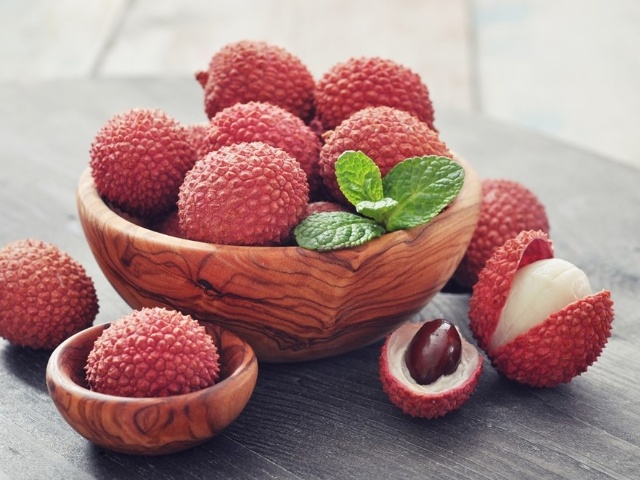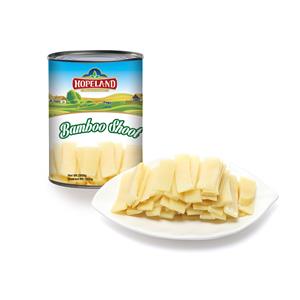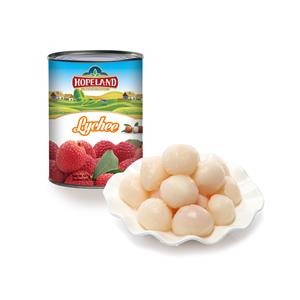Lychees Nutrition Facts and Health Benefits
Introduction
Lychees (Litchi chinensis) are tropical fruits known for their sweet, floral flavor and juicy texture. Native to China, these small, red-skinned fruits are packed with essential nutrients, antioxidants, and health-promoting compounds. This article explores lychees' nutritional profile, potential health benefits, possible side effects, and tips for incorporating them into your diet.
Nutritional Profile of Lychees
Lychees are low in calories but rich in vitamins, minerals, and antioxidants. Below is a detailed breakdown of their nutritional content per 100 grams (about 10 fresh lychees):
Nutrient | Amount (per 100g) | % Daily Value (DV) |
Calories | 66 kcal | 3% |
Carbohydrates | 16.5 g | 6% |
Fiber | 1.3 g | 5% |
Sugars | 15.2 g | - |
Protein | 0.8 g | 2% |
Fat | 0.4 g | 1% |
Vitamin C | 71.5 mg | 79% |
Copper | 0.148 mg | 16% |
Potassium | 171 mg | 4% |
Vitamin B6 | 0.1 mg | 6% |
Folate | 14 mcg | 4% |
Key Nutrients Explained:
Vitamin C – A powerful antioxidant that boosts immunity, supports skin health, and enhances iron absorption.
Copper – Essential for red blood cell formation, brain health, and immune function.
Potassium – Helps regulate blood pressure and muscle function.
B Vitamins (B6 & Folate) – Support energy metabolism and neurological health.
Fiber – Aids digestion and promotes gut health.
Health Benefits of Lychees
1. Rich in Antioxidants
Lychees contain high levels of antioxidants, including:
Oligonol (a polyphenol) – Reduces inflammation and may improve blood circulation.
Vitamin C – Neutralizes free radicals, protecting cells from oxidative damage.
Flavonoids (quercetin & kaempferol) – Help combat chronic diseases like heart disease and cancer.
2. Supports Immune Function
With nearly 80% of the DV for vitamin C per 100g, lychees strengthen the immune system by:
Enhancing white blood cell production.
Reducing the severity and duration of infections.
3. Promotes Heart Health
Potassium helps regulate blood pressure.
Polyphenols may reduce LDL ("bad") cholesterol and improve blood vessel function.
Oligonol has been linked to improved circulation and reduced risk of stroke.
4. Aids Digestion
The fiber content (1.3g per 100g) promotes healthy digestion and prevents constipation.
Prebiotic properties may support beneficial gut bacteria.
5. May Help with Weight Management
Low in calories (66 kcal per 100g).
High water content (82%) promotes satiety.
Natural sweetness can help curb sugar cravings.
6. Supports Skin Health
Vitamin C boosts collagen production, reducing wrinkles and improving skin elasticity.
Antioxidants protect against UV damage and premature aging.
7. Potential Anti-Cancer Properties
Some studies suggest that lychee extracts may inhibit cancer cell growth, particularly in breast and liver cancers, due to their polyphenol content.
8. Boosts Brain Function
Copper and B vitamins support neurotransmitter function.
Antioxidants may reduce neurodegenerative risks (e.g., Alzheimer’s).
Potential Side Effects and Precautions
While lychees are generally safe, some considerations include:
1. Hypoglycemia Risk (Unripe Lychees)
Unripe lychees contain methylene cyclopropyl glycine (MCPG), which may cause dangerously low blood sugar levels in malnourished children (linked to outbreaks in India).
Solution: Always consume ripe lychees and avoid eating them excessively on an empty stomach.
2. Allergic Reactions
Some individuals may experience itching, swelling, or hives (rare).
3. High Sugar Content
Diabetics should consume lychees in moderation due to their natural sugar content (15g per 100g).
4. Risk of Overconsumption
Excessive intake may lead to digestive discomfort (bloating or diarrhea).
How to Select and Store Lychees
Choosing Fresh Lychees:
Look for bright red or pink skin (avoid brown or cracked ones).
The fruit should feel firm but slightly springy when pressed.
A sweet, floral aroma indicates ripeness.
Storing Lychees:
Room temperature: 2-3 days (best consumed fresh).
Refrigerated: Up to 1 week in a perforated bag.
Frozen: Peel and deseed before freezing for up to 6 months.
Ways to Enjoy Lychees
Fresh – Simply peel and eat as a snack.
Smoothies – Blend with yogurt, mango, and coconut water.
Salads – Add to fruit or green salads for sweetness.
Desserts – Use in sorbets, jellies, or cocktails (e.g., lychee martini).
Dried or Canned – Convenient but watch for added sugars.
Conclusion
Lychees are a delicious and nutritious tropical fruit packed with vitamin C, antioxidants, and heart-healthy compounds. They support immunity, digestion, skin health, and may even help prevent chronic diseases. However, moderation is key due to their sugar content, and unripe lychees should be avoided.
Incorporate lychees into your diet for a refreshing, health-boosting treat!





